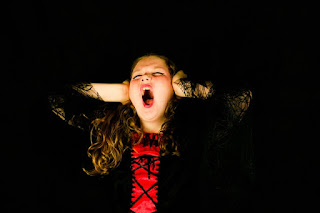Over the years, a good number of my Malaysian and South East Asian clients have discussed several common childhood experiences
that have shaped their adult mental health twenty, thirty and even
forty years on.
I'm sharing here, in case it's happened to you.
Said once when
in a temper because a kid's dawdling is human. But when used as a threat, and
when mock-abandonment is used as a punishment, you get several things happening.
First, the
child feels insecure. They know they can't rely on their family to keep them
safe. So, they become anxious. As adults, they suffer from anxiety and are
easily stressed.
Second, some
decide that as they can't rely on their family, they can't rely on anyone. That
fear knocks on and causes issues in their adult relationships with spouses,
bosses, and friends.
Third, this
kind of punishment can lead to the kid deciding the world is a hostile place
and that action is better than suffering. As a teen, this can be in the form of
rebellion (anger, joining gangs etc). As an adult, you're looking at a nasty
cycle of emotional and possibly physical violence.
"I
am your mother/father and I am never wrong"
This attitude sends an important message: kids learn that being an adult means you never have to take ownership of bad behaviour or apologize.
In a nutshell, adults who act like gods, teach their kid to be devils. Little kids from homes like these get into trouble with their playmates at school because they copy their mums and dads.
If they're lucky, teachers and other adults model proper behaviour and teach them how to get along.
If they're unlucky, they're lonely as kids and they run into trouble as adults because they won't deal effectively with their own bad behaviour
in their own relationships, including those with their partners, their own kids,
friends and with employees/staff.
Hello to
fights, divorce, loneliness and huge staff turnover. Never mind the lack of personal
growth.
"You'd
look better if you're thinner/more muscular"
Telling a child
they need to be slim or to look ripped is telling your kids they're unlovable. Apart from having rock bottom self-esteem, this
lays the ground for teenage mental health issues that includes eating
disorders, body image issues and unhealthy lifestyles including drug and
alcohol abuse.
Kids who grow up feeling that they're unlovable, suffer. They don't understand that it's the parenting that's lousy; they think they're somehow 'wrong'.
These poor kids may become bulimic, depressed, anxious or self-harm. They may try and compensate and become over-achievers. Or they just give up and burn out. Or they join a gang that offers them the love they crave.
As adults,
they may continue to be anorexic, bulimic, depressed, anxious and there's a big
chance they fall for abusive partners who leverage that inner feeling of
worthlessness in order to gain control.
There are
more things that happen in families that cause pain for generations, but these
are three common things that come up over and over again that we seldom discuss.


